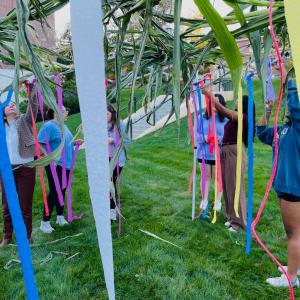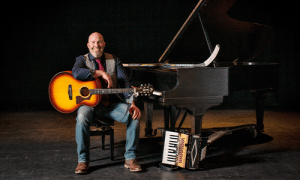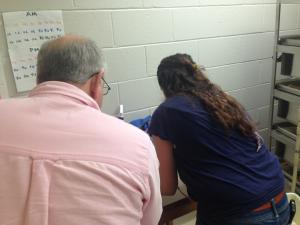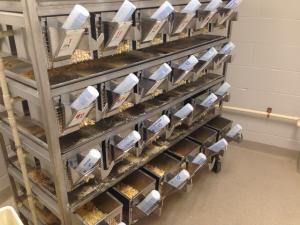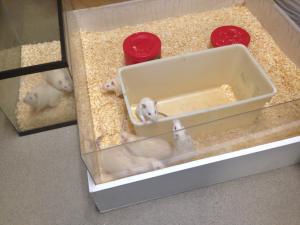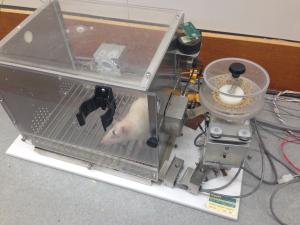The relationship between ethics and the arts has always fascinated thinkers. Join us on Monday, May 6th, for a discussion about the ethical complexities within artistic creation, consumption, and identity. During this time, our panelists will explore the intersections of gender, ethics, and art, and attempt to answer questions about how gender can and should inform the arts.
Some key topics that will be addressed:
- On the power of art: How can art trouble us? How can art challenge gender? How does our identity inform our choices and understanding of art’s power and ethical dimensions?
- On artistic production: Where does gender fit into our understanding of artistic production? What are our barriers to creating art, to making space for a more equitable, accessible, active artistic experience? How do we deal with that and why should we?
- On artistic responsibility: What is role of the individual—our personal responsibility as educators, as consumers, as citizens in a democratic, capitalist society—in thinking about how art is *in* our everyday life?
Through these discussions, this event aims to highlight the transformative potential of art in addressing ethical dilemmas and promoting social justice.
Free and open to the public. Refreshments and coffee provided.
Presented by the Diversity and Inclusion Innovation Fund, the Center for Ethics in Society, and the Richard L. Bready Chair in Ethics, Economics, and the Common Good.
Panelists:
Hilary Poriss, PhD, is a Professor of Music and Chair of the Department of Music and the College of Arts, Media and Design at Northeastern University. Her primary research interests are in the areas of 19th-century Italian and French opera, performance practice, diva culture, and the aesthetics of 19th-century musical culture. She has published four books: Gioacchino Rossini’s The Barber of Seville (Oxford University Press), Changing the Score: Arias, Prima Donnas, and the Authority of Performance (Oxford University Press), Fashions and Legacies of Nineteenth-Century Italian Opera (Cambridge University Press), and of The Arts of the Prima Donna in the Long Nineteenth Century (Oxford University Press). Her newest book project, a biography about the nineteenth-century diva Pauline Viardot (1821-1910), will be published by the University of Chicago Press.
Ann Holbrook, PhD, is a Professor of English and Chair of the English and Communication Department at Saint Anselm College. She specializes in twentieth-century British literature and literature by women writers, particularly the prolific journalist and novelist Rebecca West. She has edited and analyzed some of West's posthumously published fiction and published articles on Edna O'Brien, Virginia Woolf, Mary Lavin, Dorothy L. Sayers, Anita Brookner, Henry James, and Edith Wharton. She co-edited the 2022 collection For the Sake of the Song: Essays on Townes Van Zandt, to which she contributed an essay. An avid musician, she sings with several regional bands.
Laura Elizabeth Shea, PhD, is Assistant Professor of Art History at Saint Anselm College who specializes in the history of photography and global and contemporary art. Her work analyzes the production and reception of images that engage with the intersections of race, gender, movement, and memory in American and global contexts.
Tina Philibotte, is the Chief Equity Officer for the Manchester School District. She is also an educator, having taught both Dance and English at Goffstown High School. During this time, she was a finalist for the NH State Teacher of the Year award and a two-time fellow with the National Writing Project. She’s served as a NH Listens fellow since January 2021 and an advisory member to the Endowment for Health’s Race & Equity Series.
Katie Collins is Director of Development at the Capitol Center for the Arts in Concord. An English and Theater graduate of College of the Holy Cross, she has more than 30 years of non-profit development and management experience. Katie has led the successful management of major gifts acquisitions, capital campaigns, grants programs, and corporate giving programs. Katie is also a freelance writer and editor, and an active theatre professional, acting on stage with companies such as theatre Kapow. Her talents have been recognized by the NH Theater Awards who honored her as Outstanding Lead Actress in a Comedy or Drama in 2013.
Aaron Tolson is an internationally renowned dance professional, choreographer, and show producer. Aaron has appeared on Broadway, toured nationally, directed non-profits dedicated to instructing youth in dance, and taught both in several institutions of higher education as well as prestigious dance schools in NYC. He starred for six years in Riverdance, co-created and was the assistant producer of Imagine Tap!, and is currently the director of the pre-professional tap company “Speaking in Taps.” In Fall 2024, he will join the Fine Arts Department at Saint Anselm College as a Professor of Practice in Dance.
